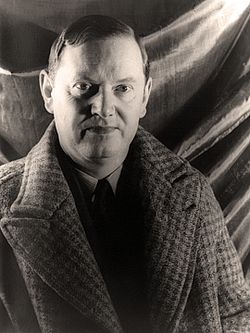Evelyn Waugh Quote
The human soul enjoys these rare, classical periods, but, apart from them, we are seldom single or unique; we keep company in this world with a hoard of abstractions and reflections and counterfeits of ourselves - the sensual man, the economic man, the man of reason, the beast, the machine and the sleepwalker, and heaven knows what besides, all in our own image, indistinguishable from ourselves to the outside eye. We get borne along, out of sight in the press, unresisting, till we get the chance to drop behind unnoticed, or to dodge down a sides treet, pause, breathe freely and take our bearings, or to push ahead, outdistance our shadows, lead them a dance, so that when at length they catch up with us, they look at one another askance, knowing we have a secret we shall never share.
The human soul enjoys these rare, classical periods, but, apart from them, we are seldom single or unique; we keep company in this world with a hoard of abstractions and reflections and counterfeits of ourselves - the sensual man, the economic man, the man of reason, the beast, the machine and the sleepwalker, and heaven knows what besides, all in our own image, indistinguishable from ourselves to the outside eye. We get borne along, out of sight in the press, unresisting, till we get the chance to drop behind unnoticed, or to dodge down a sides treet, pause, breathe freely and take our bearings, or to push ahead, outdistance our shadows, lead them a dance, so that when at length they catch up with us, they look at one another askance, knowing we have a secret we shall never share.
Related Quotes
About Evelyn Waugh
Waugh, the son of a publisher, was educated at Lancing College and then at Hertford College, Oxford. He worked briefly as a schoolmaster before he became a full-time writer. As a young man, he acquired many fashionable and aristocratic friends and developed a taste for country house society.
He travelled extensively in the 1930s, often as a special newspaper correspondent; he reported from Abyssinia at the time of the 1935 Italian invasion. Waugh served in the British armed forces throughout the Second World War, first in the Royal Marines and then in the Royal Horse Guards. He was a perceptive writer who used the experiences and the wide range of people whom he encountered in his works of fiction, generally to humorous effect. Waugh's detachment was such that he fictionalised his own mental breakdown which occurred in the early 1950s.
Waugh converted to Catholicism in 1930 after his first marriage failed. His traditionalist stance led him to strongly oppose all attempts to reform the Church, and the changes by the Second Vatican Council (1962–65) greatly disturbed his sensibilities, especially the introduction of the vernacular Mass. That blow to his religious traditionalism, his dislike for the welfare state culture of the postwar world, and the decline of his health all darkened his final years, but he continued to write. He displayed to the world a mask of indifference, but he was capable of great kindness to those whom he considered his friends. After his death in 1966, he acquired a following of new readers through the film and television versions of his works, such as the television serial Brideshead Revisited (1981).
